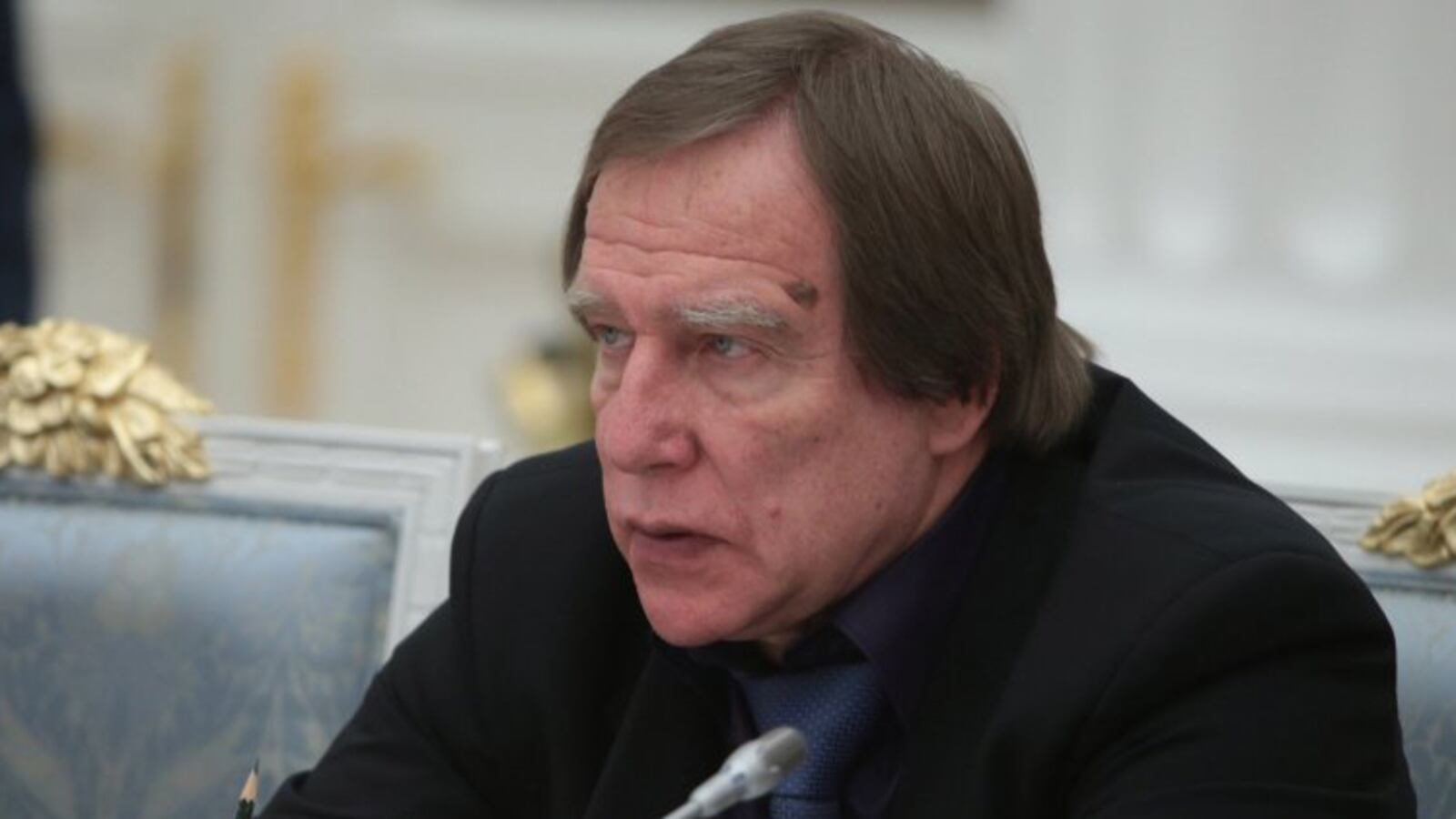MOSCOW — Before the International Consortium of Investigative Journalists released the now famous Panama Papers, the enormous leak of offshore financial records, almost nobody in Russia remembered that Vladimir Putin’s closest friend from the 1970s was a St. Petersburg musician named Sergei Roldugin. Even fewer could imagine that the cellist with an old- fashioned haircut lived a secret life offstage, allegedly plotting huge scams and moving more than $2 billion through a network of offshore bank accounts and companies.
Many wondered if Roldugin could have done all that for his best friend, were curious to know why Putin chose the musician, and not a business tycoon, not an FSB agent or a judo sparring partner to be his finance man. So the mystery life of the soloist from the Mariinskiy Theater orchestra pit was quickly and widely discussed in Russian business and civil society circles when the news broke.
“I am so surprised, I have no words—I always thought that somebody like the billionaire Timchenko or Putin’s sons-in-law would be his bag men,” investigative reporter Pavel Kanygin told The Daily Beast. “But maybe all of them were in the cross-hairs of tax police. And nobody expected that the bag man would be the cellist.”
The head of civil society organization Russia Behind The Bars, Olga Romanova, admitted she had never heard the name Roldugin before the Panama Papers. “This is an amazing journalistic investigation,” Romanova told The Daily Beast. “I am very surprised to learn about Roldugin and now I am waiting to hear about Putin’s personal masseur, also supposedly a trustee, like Roldugin…. I believe there are several men who Putin is using in his shadowy financial life.”
Russian experts agreed that the musician Roldugin was a perfect candidate for shadowy scams. “If Roldugin was hiding the money for Putin, as his personal finance man, nobody was supposed to know about that—money, as we all know, likes silence,” Moscow financial expert Aleksei Kozlov told The Daily Beast. Analyzing the transfers to one Mossack Fonseca, the company at the heart of the scandal, Kozlov said, “All the deals are fake, their goal is to receive offshore money from big corporations and the receiver is a man close to the president, a politically exposed person,” Kozlov said.

Several Russian public figures assumed that the only politician Roldugin could be saving the money for was president Putin and that the musician did not inform the offshore company that he was a politically exposed person, or PEP, in the jargon of corruption investigations. (PEPs are individuals entrusted with prominent public functions that could be abused for money laundering, bribery and the like.)
“It would be difficult to prove that Roldugin was keeping money for the president, but the legalization of money”—the laundering of illicit funds—“would be possible to investigate and punish for, as that was corruption,” Kozlov told The Daily Beast.
The vice-president of Transparency International, Yelena Panfilova, was impressed to learn about Roldugin: “That was a very-very smart choice of a character, any transactions could be done through Roldugin, while it would be very difficult to catch and prosecute him for breaking both anti-money-laundering and anti-corruption laws,” Panfilova said. “He is an ideal instrument.”
While Russian officials mentioned in the Panama Papers denied their sins and threatened to sue the authors, the talk of the town in Moscow was about the punishment for Russian politicians, their friends and family members keeping money on offshore accounts.
Where did Roldugin get the money from? Maxim Mironov, a professor at the IE Business School in Madrid, has studied Raldugin’s transactions. In the blog published on Echo of Moscow website, Mironov said that he was “absolutely certain that the money was bribes” given to the president.
But … if the money collected overseas for a decade came from various bribes to Putin, who would punish his friend? That was a difficult question even for Transparency International. “The Financial Action Task Force (FATF) delegates such issues to national jurisdictions and Russia, in spite of multiple promises for years, never created the record of PEPs.”
Indeed, given what we have now discovered, why would it?





